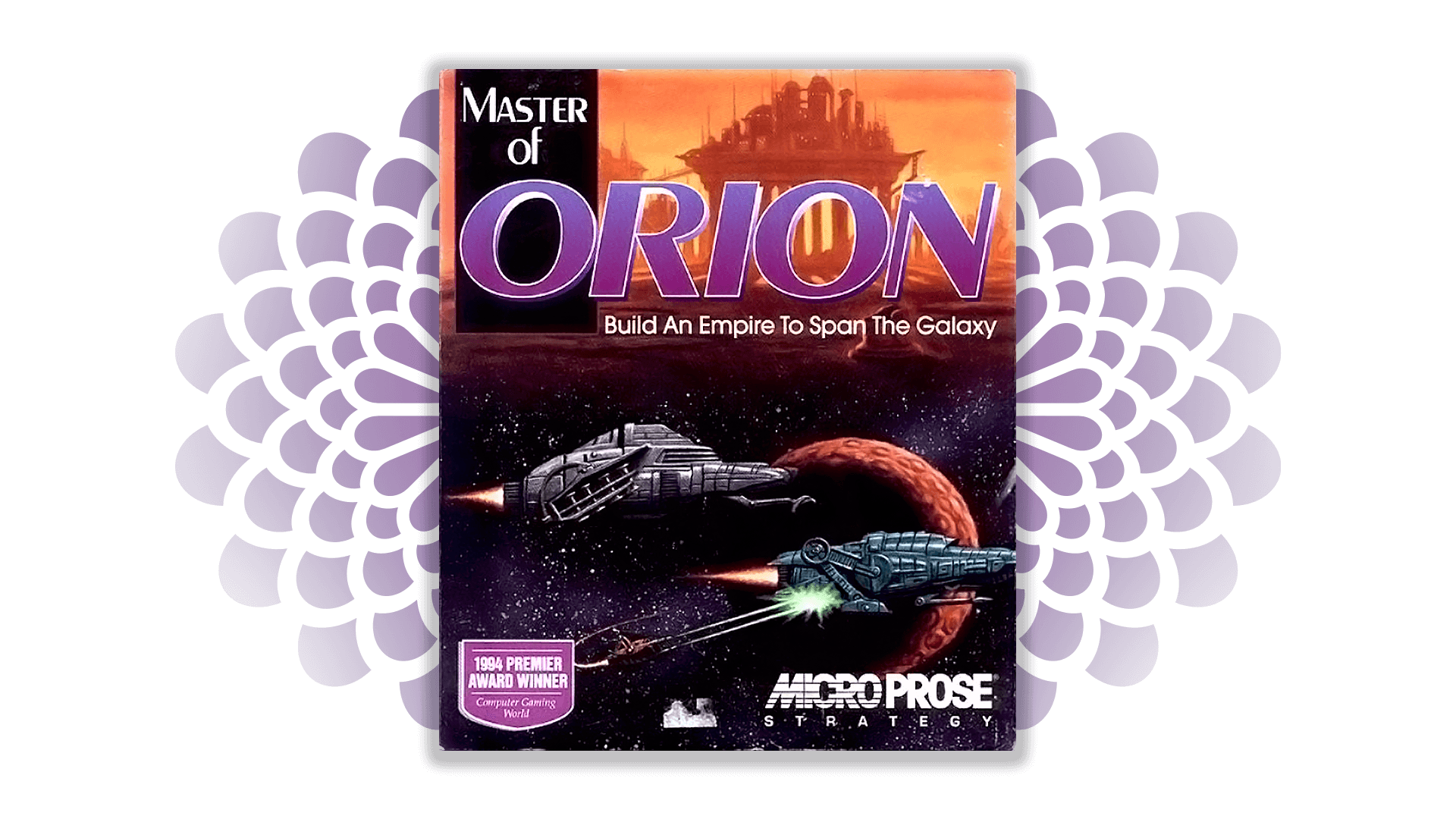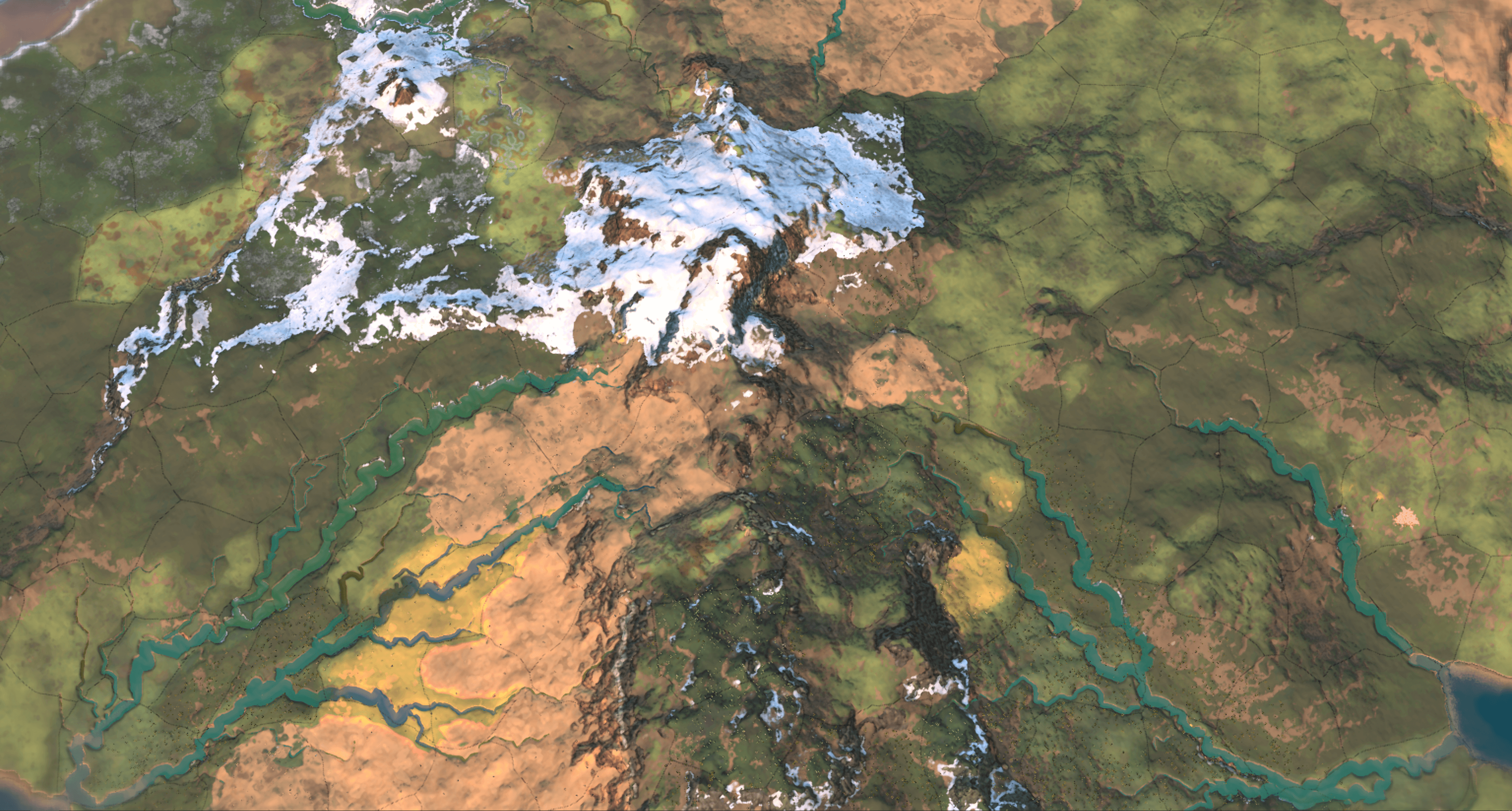Hi everyone!
Defining Ara: Part I
For the first real foray into these diaries, I think it fitting to start only at the very beginning – why are we doing what we’re doing? Many on the leadership team have a strong pedigree of shipped strategy and simulation titles and have worked specifically in strategy games for decades in their respective careers. We’ve seen massive successes, disappointing misses, and all manner of nuance in between. So what at this point can we add that’s new and positive to the conversation that hasn’t already been tried to death?
4Xs, no 6Xs, …wait, Grand Strategy?
First up, we set out to make the bestest 4X turn-based historical strategy game we could make (more on that historical bit later). Having worked on multiple 4X titles before, we were all familiar with the terminology and what mechanics they immediately afforded. However, something amusing began to occur. As we interacted with players through early focus testing and user research, it became apparent that while some players identified with this moniker, not all did – many hadn’t even heard of it before. (And to be clear, these peeps are definitely in the hardcore strategy gamer group, and have the game hours and knowledge to back it up).
We began to realize that maybe, just maybe, those framing traditional 4Xs weren’t the best way to describe the game to our audience anymore, and could in fact alienate some people just based even on pure verbiage alone.
Permit a brief digression…What are they anyway?
The term 4X first appeared back in the ancient year of 1993, coined by Alan Emrich, a writer, designer, and reviewer for Computer Gaming World, as basically a printed-clickbait-title-pun to describe the newly released Master of Orion. (“It’s rated XXXX!” Cue the pearl-clutching and offended gasps.)

Each X stands for one core dynamic of gameplay:
- Explore: Starts out pretty straightforward here. Typically one sends out units to explore an obfuscated map and uncover some cool stuff along the way.
- Expand: Now that you’ve found that cool stuff, you should take it for your own. Don’t let your neighbors get it first. Simple enough in concept, but here is where we also start to run into some potential issues of what does it mean to take other people’s cool stuff?
- Exploit: Now that you own that cool stuff, you should use it to press your advantage. Hrm, depending on what that cool stuff is, this has some rather obvious optics issues.
- Exterminate: Make like a Dalek and now use that cool stuff to wipe your foes off the map. This is also not very polite.
Back to the discussion at hand
First up, we tried reframing each X with a new modern lens – keep the core concept of what kind of gameplay this is representing intact, but broaden them to be less about a militaristic, conquestitorial punch to the face.
- Explore broadened to not only be about the map itself, but also about the exploration of other systems, particularly Technology, and how can the uncovering of knowledge be used to your advantage, not just physical space.
- Expand again became larger than the map, and focuses on mechanics around population growth and production capabilities.
- Exploit still of course used resources as a main focus, but also took to how to use other consumable one-time-use bonuses to further your advantage, and less on stomping on non-player nations you might encounter on the map.
- Exterminate also expanded to be more than just military, and looked to other forms of direct competition through other systems, such as economics.
Ok, so some improvements there, still not great though. And even with these updates, there lacked some direction on how to address some key issues the team identified they’d like to address in the genre space under this umbrella.
The first biggie was optimal strategy. One of the core joys of the genre is learning each game’s unique systems and how they interact with each other, mastering all the tiny intricacies and how best to deploy them to your advantage to crush your foes. Straight-up delightful. Problem is, in some games, once you’ve learned this, you’ve also figured out that there is sometimes in fact just one way you should play if you want to play competitively, to win in all cases. Ruh-roh. So for a game at it’s core about strategizing new tactics and using the vast powers of your intellect to defeat overwhelming odds… always using the same exact systemic string of tasks to win seems….less than ideal shall we say.
Whelp, why not add a new X, say, Experimentation, to start to use this as a pillar to combat issues like optimal strategy. When at all possible, when designing systems, we should look to ways to encourage meaningful choices and no predetermined linear paths to victory. Allow the player chances to engage their mind, make tactical decisions. We’re all familiar with procedural maps and how the initial start up differences can change initial strategies, but why stop there? What are other places we can bring this problem-solving and decision making into? (Stay tuned for the deep dive on Technologies).
And if we’re adding X’s, heck, let’s just keep going and expand the breadth of the design possibilities. Namely here in terms of Expression. I don’t know about you, gentle reader, but when I play games with other human, board or digital, it’s frequently quite apparent unique styles of play start to emerge based on whom you’re playing with. Some people like to go for the jugular immediately, stomping anyone in their path, even if it’s a 5 year old. Others don’t care about winning, they just like to trololol mess with people and exert dominance by being a nuisance. Some people just want to have a good time and enjoy the company, and don’t really care about the activity itself. Some like to try out new strategies, even if they fail, and test the waters of the possibility. And still others have other motivations that uniquely suit themselves.
And in here lies a key ingredient missing in the original X’s – this concept of differing motivations and letting players be their unique selves in these complex systems. Are there ways we can craft systems that encourage this kind of unique expression, unique agency, all within a varying motivation framework? I’m told I can’t talk about what we did yet (NO SPOILERS!), so …again, stay tuned for deets. But stuff we did do.
So for a while, we called Ara a 6X game internally and with Publishing. Some liked it and found it a refreshing approach. Some ….let’s say… did not. It wasn’t the direction that was problematic, but rather, the changing and appropriation of the age-old moniker.
We also found that even with the additional X’s, there is still a perception with many developers and players that a 4X game should fit a very specific mold, and ours was definitely not at this point. It was becoming bigger than. Different than. The additional X’s weren’t containing it in a meaningful way. The baggage of the terminology was even becoming to be a hindrance to some players, and as mentioned above, others had no connection to the terms at all, despite being genre fans.
Of course, day to day what we called the game had no effect on its development. However, when it came time to start messaging more broadly about it, even internally, we had to take a step back. What IS Ara? In a single sentence, how do you describe it to someone who’s never heard of it before? How can you succinctly describe something if you also have to describe the terms themselves in the same sentence?
We could however all agree on some key facts:
- It’s turn-based.
- It’s historically referenced and driven.
- It’s a strategy game, not a tactics game.
- It’s big.

With this new list, it quickly became apparent that there is a genre-term out there that does fit the bill perhaps a little bit better than 4X or 6X – Grand Strategy. Is it a perfect fit? No, as many things in life are not, like my wardrobe in a post-covid world. However, it does begin to describe the overall scale and scope of the game better, and more importantly, more broadly than trying to stuff it into four or six little words.
Does everyone internally agree that this is the best term? No, as GS games also have some expectations set with them that we’re subverting in a few areas. But, short of coining new words and introducing new confusions, it’s likely the best we got.
What is Ara then? Ara: History Untold is at its core an evolution in turn-based historical grand strategy with no pre-set paths to victory, leading to endless possibilities. Your choices will define the world you create, your experience, and your legacy.
Aaaaaaand I’ve been told this is already too long and I’ve bored the majority of the world. See you next time for Part II: Key Tenets and Myriad Musings.
— Michelle Menard Design Director – Oxide Games
Share your thoughts with us on the Insider Forums!
